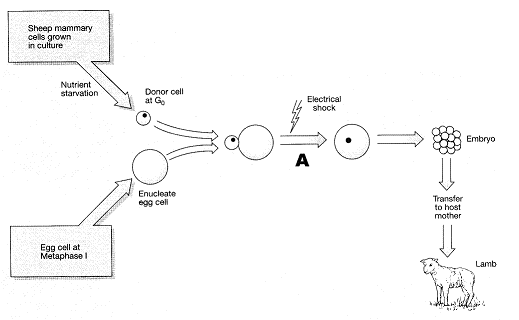In Experimental Condition 2 of the accompanying figure, the distribution of Chthamalus suggests that:a
interspecific competition kept Chthamalus from extending lower into the intertidal area.
b. intraspecific competition kept Chthamalus from extending lower into the intertidal area.
c. a limiting factor kept Chthamalus from extending lower into the intertidal area.
d. a barnacle parasite kept Chthamalus from extending lower into the intertidal area.
e. predation kept Chthamalus from extending lower into the intertidal area.
a
You might also like to view...
In Figure 17-1, the purpose of growing the donor cells in nutrient-limited media is:

a. to have small cells that would be easier to manipulate.
b. to replicate a normal environment.
c. to force the donor cell nucleus into the G0 cell stage.
d. to induce favorable mutations.
e. to initiate apoptosis.
The ________ continually senses and adjusts our body systems to maintain homeostasis
Fill in the blank(s) with correct word
Which statement about meristematic tissue is true?
a. It causes determinate growth in leaves and flowers. b. It is found at the base of all stems and roots. c. It is capable of continually dividing throughout the life of the plant. d. Its cells differentiate soon after development. e. Its cells are dead at functional maturity.
The main vegetative parts of plants include
A. roots, flowers, and stems. B. fruits, flowers, and leaves. C. roots, stems, and leaves. D. stems, roots, flowers, leaves, and fruits. E. flowers and fruits only.